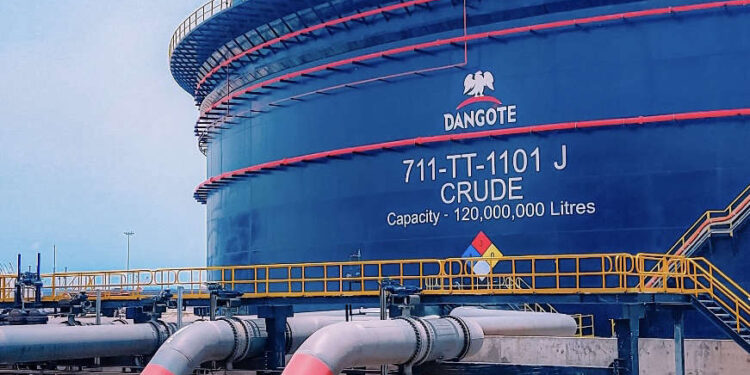The recent reduction in the ex-depot price of Premium Motor Spirit (PMS), commonly known as petrol, by Dangote Petroleum Refinery to ₦899.50 per litre from ₦970 per litre has yet to impact the minimum pump prices at filling stations.
In Lagos, most petrol stations continue to sell at the previous price range, with Nigerian National Petroleum Company Limited (NNPCL) outlets maintaining a minimum of ₦1,025 per litre. Major oil marketers still sell at ₦1,070, while independent marketers charge as high as ₦1,100 per litre.
The refinery had announced that the price slash was intended to provide relief to Nigerians, particularly during the holiday season.
Meanwhile, commenting on the pricing issue, the National President of the Oil and Gas Services Providers Association of Nigeria, OGSPAN, Maxi Colman Obasi, said: “Dangote Petroleum Refinery has done well to reduce the ex-depot price of petrol. The marketers should reciprocate by ensuring that consumers benefit from it.”
Another expert who pleaded to be anonymous, said: “The market has been deregulated. The price of crude oil has fallen from more than $73 per barrel to $72 per barrel, meaning that refiners now pay less for crude oil. This and other factors should force the price of petrol to drop.”
Earlier, in communicating the price reduction, Dangote stated: “To alleviate transport costs during this holiday season, Dangote Refinery is offering a holiday discount on PMS. From today, our petrol will be available at N899.50 per litre at our truck loading gantry or SPM.
“Furthermore, for every litre purchased on a cash basis, consumers will have the opportunity to buy another litre on credit, backed by a bank guarantee from Access Bank, First Bank, or Zenith Bank”.
The refinery also expressed its gratitude to Nigerians for their continued support as the country enters the festive season.
The Chief Branding and Communications Officer of Dangote Group, Anthony Chiejina, also said the refinery is committed to ensuring Nigerians have access to premium quality petroleum products that are competitively priced, as well as environmentally and engine friendly. He also said that the refinery’s operations mark the end of Nigeria being a dumping ground for substandard and ‘blended’ imported products, which have posed significant risks to human health, machinery, and the environment.







